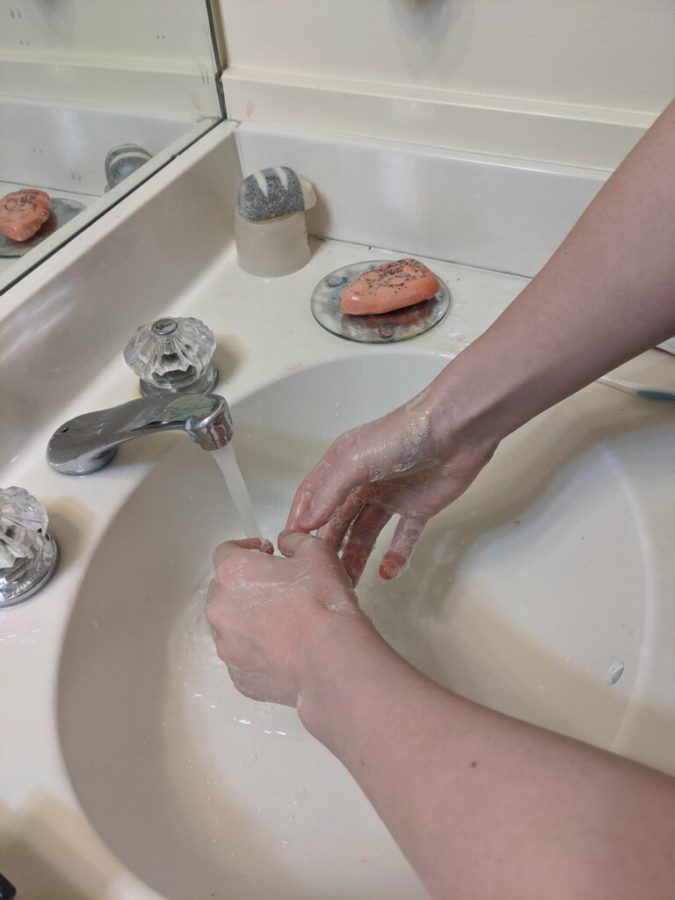Why And How To Wash Your Hands
Managing Editor Libby Jones washing her hands at home, adhering to the guidelines from the CDC (and Cambridge science teachers).
March 16, 2020
Though disease can be worrisome and staying healthy and safe can be daunting, the good news is there are a few simple precautions that can help reduce the spread of the coronavirus and other common illnesses.
Chief among them right now, according to the World Health Organization and Centers for Disease Control, is staying away from others — practicing “social distancing.” Avoiding as much contact with others is the best way to make sure you don’t get sick or spread a disease to others.
However, this is only necessary during an outbreak like the current coronavirus pandemic.
Another very important strategy is regularly and thoroughly washing your hands. Proper hand-washing is important all the time, not just during an epidemic.
Beyond just washing hands often, though, it’s important to wash your hands well.
Anatomy and biology teacher Gretchen Martin said the backs of hands, fingernails and in between the fingers are commonly-missed areas. To effectively clean your hands, it’s important to wash all those areas.
“People really get the palm,” Martin said, but the rest of the hands tend not to get a good clean unless you specifically take time to wash them.
According to the CDC, people should wash their hands for at least 20 seconds, but Martin said taking longer — even up to a full minute — doesn’t hurt.
“I know better than the CDC,” Martin said jokingly.
To estimate the length of time to wash your hands for, biology and AP Biology teacher Lacy George said singing or humming a song is a good guideline.
A common recommendation is to sing “Happy Birthday,” though George said, “Just pick a song you like.”
Both the CDC and WHO guidelines say that either washing hands with soap and water or an alcohol-based hand sanitizer can be used to kill germs.
However, if soap and water are available, that method is preferable.
Although hand sanitizer — the CDC recommends using a product with at least 60% alcohol — can kill viruses, it doesn’t get as deep a clean as soap and water.
Soap and water is also easier to come by at the moment, with many stores sold out of hand sanitizer.
“Soap contains a surfactant which can break down cell membranes and cell walls,” said biology and AP Biology teacher Lacy George. Many soaps are also antibacterial.
Washing with soap and water, George said, also physically removes dirt, so while hand sanitizer can help fight disease, fully washing your hands is better at getting them clean.
Beyond washing your hands, other hygeine tips that are good ideas at any time are especially important during disease outbreaks.
Martin said avoiding touching your face, especially the eyes, nose or mouth, and using a paper towel to open the door when leaving a bathroom are both good practices to stay clean and healthy.
Aside from national or international organizations, information on the coronavirus and preventing it can be found through local health organizations as well.
Clinic Assistant Lundee Matthews said Fulton County provides information that she can pass on to students who come to the clinic. The same information is available on the FCS website, so students, parents or anyone else can access it.
“They update pretty much every day,” she said.

